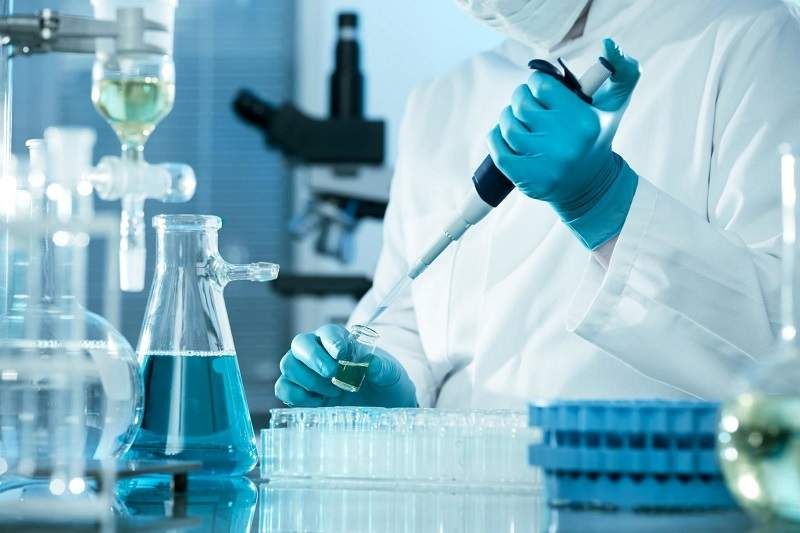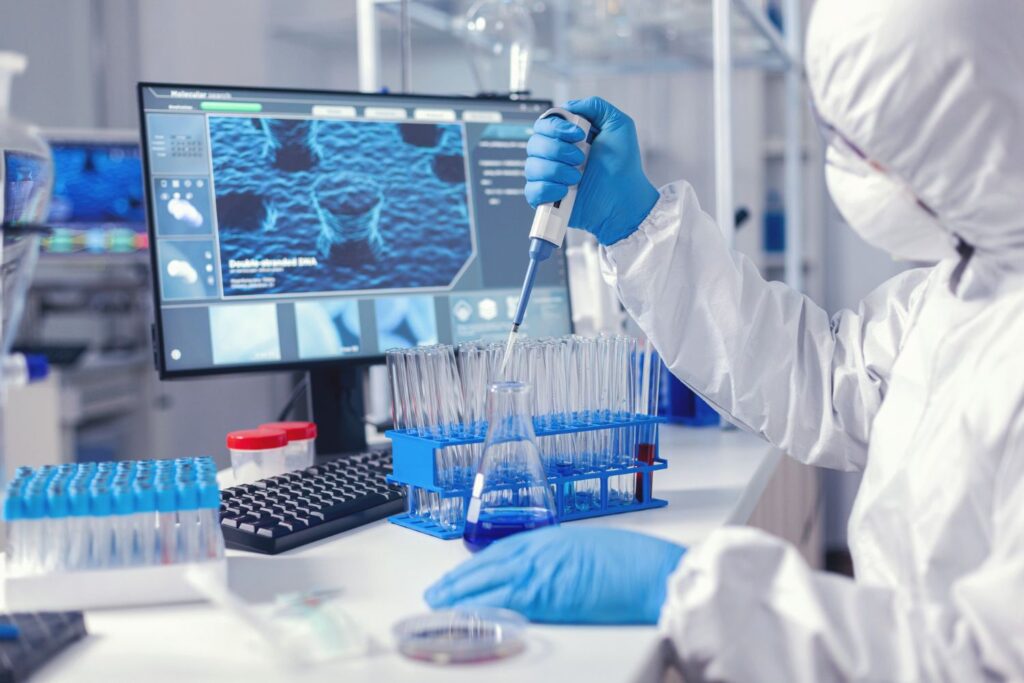Welcome to the fascinating world of biotechnology, where science and innovation converge to reshape the way we live, heal, and thrive. From unlocking the secrets of our DNA to creating sustainable solutions for a better future, technology is revolutionizing multiple industries and pushing the boundaries of what is possible.
In this blog post, we will dive deep into the realm of biotechnology, exploring its origins, various types, potential benefits, and drawbacks, as well as its exciting prospects for tomorrow. So grab your lab coat and get ready to embark on a journey through this captivating field that holds immense promise for humanity’s progress. Let’s unlock the mysteries together!
What is biotechnology?
Biotechnology is a multidisciplinary field that harnesses biological processes and organisms to develop innovative products and technologies. It combines biology, chemistry, genetics, engineering, and other scientific disciplines to tackle real-world challenges. At its core, technology involves manipulating living organisms or their components to create useful applications.
One of the key areas of focus in biotechnology is genetic engineering. Scientists can modify an organism’s DNA by adding or removing specific genes to enhance desired traits or eliminate undesirable ones. This technique has opened up endless possibilities, from creating disease-resistant crops to producing human insulin using genetically modified bacteria.
Another aspect of technology is synthetic biology, which involves designing novel biological systems with predefined functions. By utilizing the principles of engineering and molecular biology, scientists can construct new organisms capable of performing tasks such as producing biofuels or synthesizing valuable chemicals.
Biotechnology also plays a crucial role in medicine and healthcare. It enables the development of more effective drugs through methods like recombinant DNA technology. Biotechnological advancements have led to treatments for previously untreatable diseases as well as improved diagnostic tools for early detection.
In agriculture, technology offers solutions for increasing crop yields while minimizing environmental impact. Genetically modified crops can be engineered to resist pests or tolerate harsh conditions such as droughts or extreme temperatures. This not only improves food security but also reduces the need for harmful pesticides and herbicides.
Biotechnology holds immense potential across various sectors – from energy production to environmental remediation – paving the way for sustainable practices and groundbreaking discoveries that will shape our future in remarkable ways.
History of biotechnology
Biotechnology has a rich and fascinating history that dates back thousands of years. While the term itself may be relatively new, humans have been harnessing the power of technology for centuries.
One of the earliest examples of technology can be traced back to ancient civilizations such as the Egyptians, who used fermentation techniques to make bread and beer. They unknowingly utilized microorganisms to transform raw materials into usable products.
Fast forward to the 20th century, when significant advancements in technology were made. In 1953, James Watson and Francis Crick discovered the structure of DNA, unlocking new possibilities for genetic research. This discovery laid the foundation for modern biotechnology as we know it today.
The development of recombinant DNA technology in the 1970s revolutionized technology by allowing scientists to manipulate and engineer genes from different organisms. This breakthrough paved the way for applications such as gene therapy, genetically modified crops, and personalized medicine.
In recent years, CRISPR-Cas9 technology has emerged as a powerful tool in gene editing. It allows scientists to precisely edit DNA sequences with unprecedented accuracy and efficiency. This breakthrough holds immense potential for treating genetic diseases and improving agricultural practices.
With each passing year, new discoveries are being made in the field of technology that push boundaries and open doors to unimaginable possibilities. As our understanding grows deeper, so too does our ability to harness nature’s building blocks for innovative solutions across various industries.
The history of technology is marked by continuous progress driven by human curiosity and ingenuity. From ancient fermentation techniques to cutting-edge gene-editing tools like CRISPR-Cas9, each milestone brings us closer to unlocking nature’s secrets on an ever-expanding scale.
Types of Biotechnology

Biotechnology is an incredibly diverse field, encompassing a wide range of techniques and applications. Let’s explore some of the different types of biotechnology that are revolutionizing various industries.
- Agricultural Biotechnology: This branch focuses on improving crops and livestock through genetic engineering. It involves altering the DNA to enhance characteristics like disease resistance, yield, and nutritional content. By creating genetically modified organisms (GMOs), agricultural biotech has the potential to address food security challenges and reduce reliance on chemical pesticides.
- Medical Biotechnology: This area encompasses the use of biotechnological tools for medical purposes. It includes developing innovative drugs, vaccines, diagnostics, and therapies using recombinant DNA technology or cell-based approaches. Medical biotech has transformed healthcare by providing personalized treatments for diseases like cancer, diabetes, and genetic disorders.
- Industrial Biotechnology: Here we see how biological systems are harnessed to produce valuable products in large quantities sustainably. From biofuels to enzymes used in laundry detergents or textile manufacturing processes, industrial biotech offers environmentally friendly alternatives to traditional methods.
- 4. Environmental Biotechnology: This field utilizes biological processes to mitigate environmental problems such as pollution remediation or wastewater treatment. Microorganisms can be engineered or employed naturally to break down pollutants into harmless compounds, promoting ecological balance.
- 5. Synthetic Biology: A rapidly growing area within biotech that combines biology with engineering principles. The goal is to design new biological components/systems not found in nature.
By constructing artificial DNA sequences,to synthesize novel proteins, circuits, and even whole microorganisms, synthetic biology holds promise for numerous applications including medicine,fuel production,and environmental sustainability.
Biotechnological advancements continue at a breathtaking pace, redefining possibilities across many sectors. We have only scratched the surface here, but this glimpse shows why understanding the different types of biotech is key. As research progresses, the boundaries will blur further, paving the way for new interdisciplinary fields and unforeseen breakthroughs.
Pros and Cons of Biotechnology
Biotechnology has undoubtedly revolutionized various aspects of our lives, from healthcare to agriculture. However, like any other scientific advancement, it comes with its own set of pros and cons.
One major advantage of technology is its potential to improve human health. Through genetic engineering and gene therapy, scientists can develop treatments for previously incurable diseases. This opens up new possibilities for personalized medicine tailored to an individual’s unique genetic makeup.
In the field of agriculture, technology offers solutions to global food security issues. Genetically modified crops can be engineered to withstand harsh environmental conditions or resist pests and diseases. This not only increases crop yields but also reduces the need for harmful pesticides.
Another positive aspect is the potential for environmental sustainability. Bioremediation techniques utilize microorganisms that can break down pollutants in soil and water, aiding in cleaning up contaminated sites.
On the flip side, there are concerns about the ethical implications surrounding technology. Manipulating genes raises questions about playing “god” and interfering with natural processes. The long-term effects on ecosystems are still not fully understood.
Furthermore, there are worries about corporate control over genetically modified organisms (GMOs) and patented seeds. Critics argue that this monopolization hampers farmers’ independence and restricts biodiversity by promoting uniformity in crops.
Privacy concerns also arise when it comes to advancements such as genetic profiling or DNA databases. There is a need for strict regulations to protect individuals’ confidential information while ensuring progress in biotechnological research.
To harness the benefits of biotechnology while addressing these concerns adequately requires a balanced approach through comprehensive regulation frameworks that consider both scientific advancements and societal impact alike
Biotechnology in the future
Biotechnology in the future holds immense potential for transforming various aspects of our lives. With advancements in genetic engineering and synthetic biology, we are on the brink of a new era where technology will revolutionize industries such as healthcare, agriculture, energy, and environmental conservation.
In healthcare, technology offers promising solutions for treating diseases that were previously considered incurable. Pharma consulting firms help pharmaceutical companies navigate these advancements, advising on regulatory compliance, market strategies, and research investments.Gene editing techniques like CRISPR-Cas9 have already shown great promise in correcting genetic mutations responsible for inherited disorders. In the future, we can expect more targeted therapies and personalized medicine tailored to an individual’s unique genetic makeup.
In agriculture, biotechnology can help address food security challenges by developing genetically modified crops with enhanced nutritional value and resistance to pests or drought. This could potentially increase crop yields while minimizing the use of pesticides and water resources.
The field of renewable energy is also likely to benefit from technological advancements. Microorganisms engineered through synthetic biology can produce biofuels from renewable sources like algae or agricultural waste. The development of efficient biofuel production processes has the potential to reduce our dependence on fossil fuels and mitigate climate change.
Moreover, technology offers innovative approaches to environmental conservation. Bioremediation techniques using genetically engineered microorganisms can help clean up polluted environments by breaking down harmful contaminants into harmless substances.
However, it is crucial to consider the ethical implications surrounding certain applications of biotechnology in the future. The debate around gene editing in humans raises concerns about designer babies and unintended consequences on future generations’ health.
Despite these potential drawbacks and ethical considerations, there is no denying that biotechnology holds tremendous promise for shaping a brighter future across various sectors. As technology continues to advance rapidly, it is essential that comprehensive regulations are put in place to ensure responsible use while maximizing its benefits for humanity’s well-being.
Conclusion
Biotechnology has transformed the way we perceive and interact with the natural world. From its humble beginnings in ancient times to today’s cutting-edge advancements, it has paved the way for groundbreaking discoveries and innovative solutions. As we continue to unlock the mysteries of life, biotechnology holds tremendous potential for improving human health, enhancing agriculture, and addressing environmental challenges.
While there are certainly ethical considerations and potential risks associated with technology, there is no denying its immense contributions to society. The ability to manipulate genes through gene editing techniques like CRISPR-Cas9 opens up possibilities for curing genetic diseases and creating more resilient crops. Synthetic biology offers endless opportunities for designing new molecules, materials, and even organisms that can revolutionize various industries.
Looking ahead into the future of technology, it is clear that this field will play a pivotal role in shaping our lives. We can expect further advancements in personalized medicine tailored to individual genetic profiles. Agricultural practices will become more sustainable as genetically modified crops help increase yields while reducing resource consumption.
However, it is crucial that we approach these developments responsibly and ethically. Regulation frameworks must be established to ensure safety standards are met while balancing innovation with precautionary measures.
In conclusion (without using those words), biotechnology represents a fascinating frontier where science meets technology on a molecular level. It holds incredible promise for tackling some of humanity’s most pressing challenges while also raising important questions about ethics and responsibility.
As we navigate this ever-evolving landscape of technology, let us embrace curiosity but also exercise caution so that we may fully harness its potential benefits without compromising our values or jeopardizing our environment.







